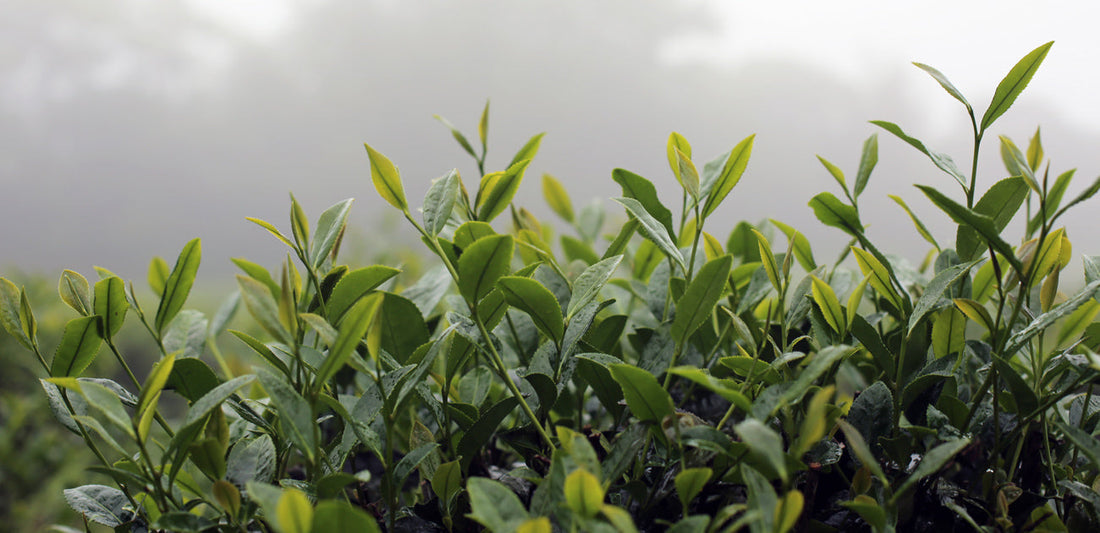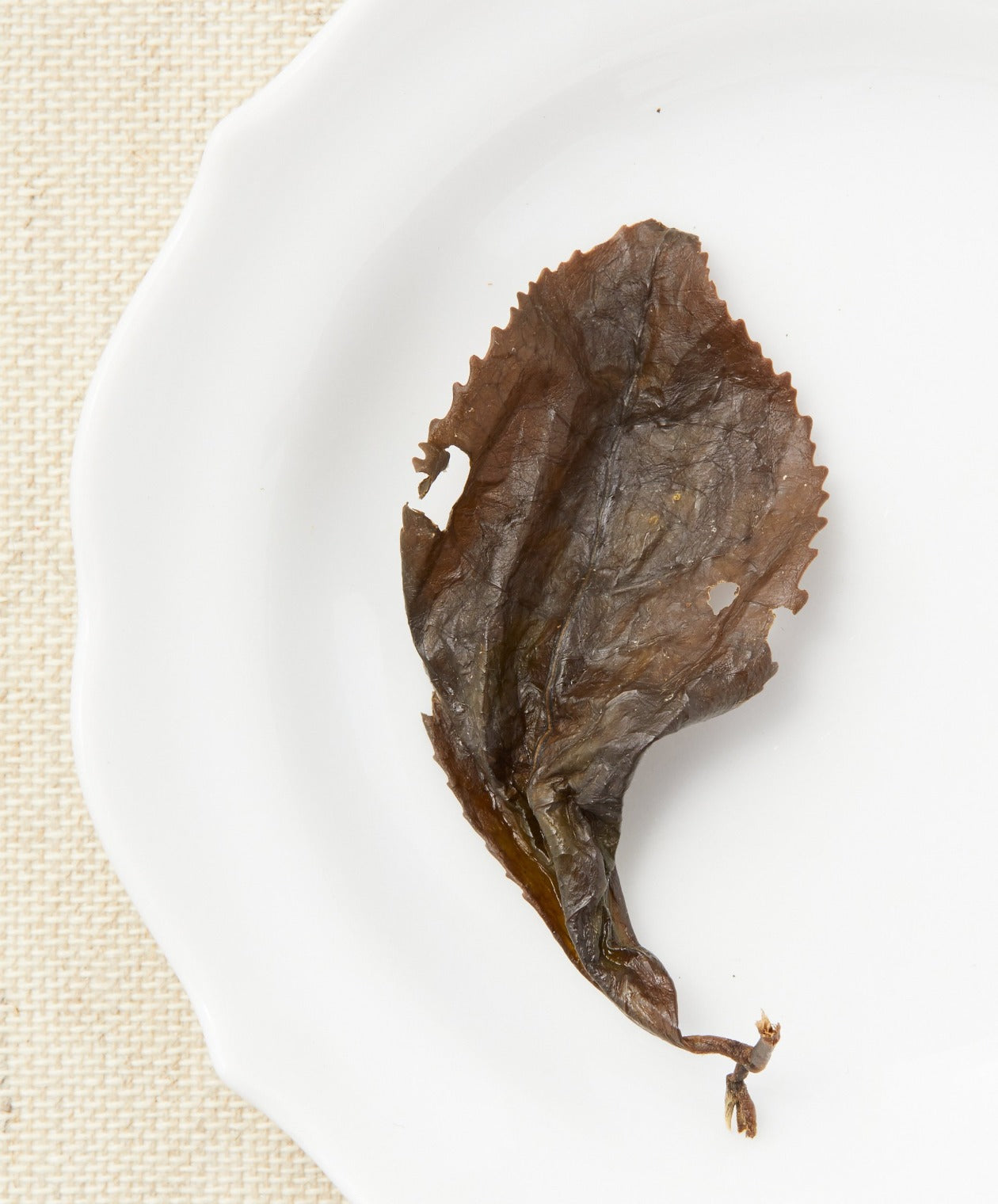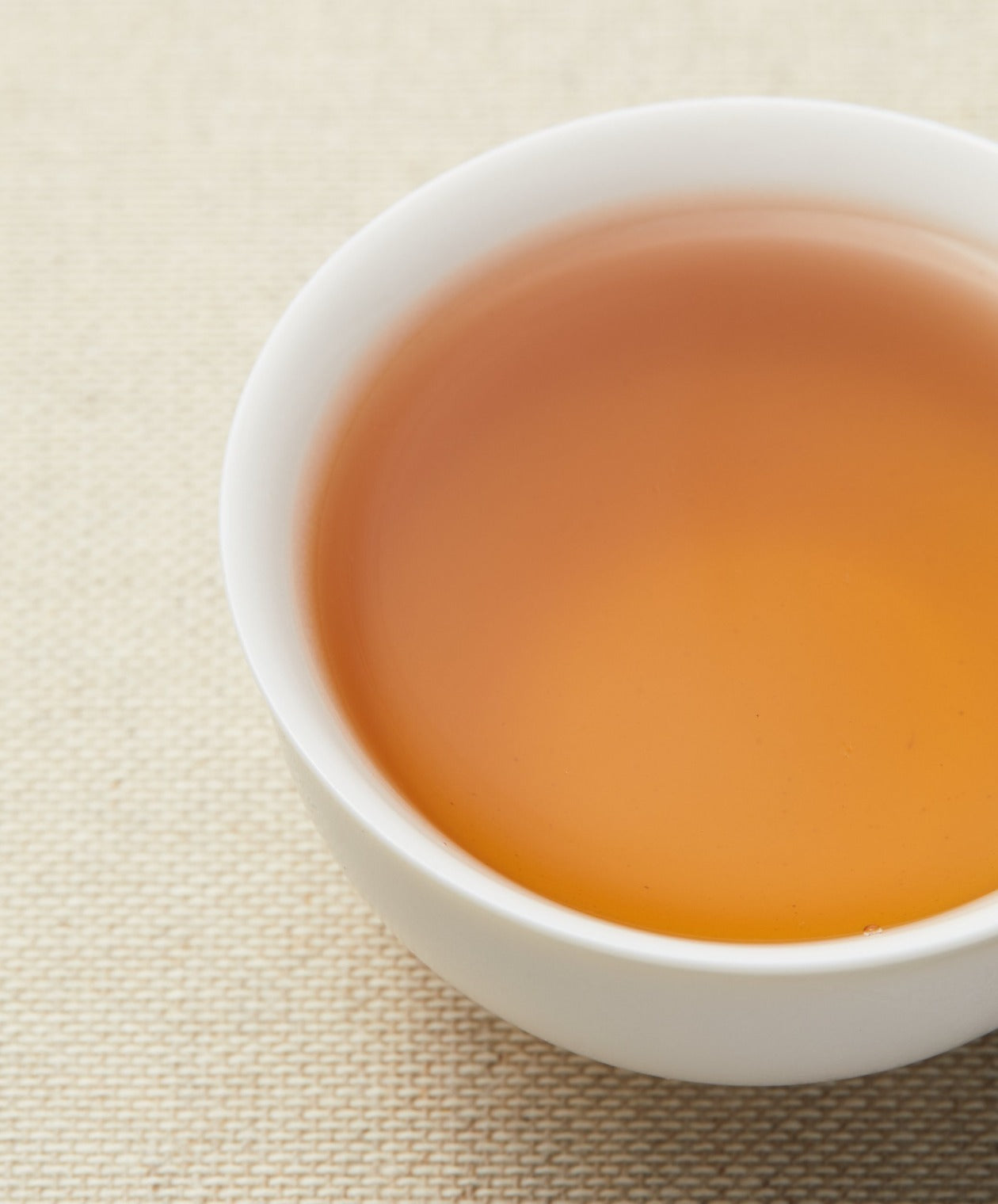
Benefits of GABA Tea
Have you ever tried GABA tea? It's a type of tea processed to be rich in gamma-aminobutyric acid. This substance has been linked to all kinds of health benefits. We're talking about stress relief, benefit anxiety, and even help with conditions like insomnia and hypertension.
While scientists aren’t completely sure whether GABA can cross the Blood to Brain Barrier, drinking GABA tea can help promote overall health, and its fans claim the tea helps them achieve a calm state of being and a sense of clarity.
What is GABA and GABA Tea
GABA isn't just a fun acronym. It's an amino acid that plays a crucial role in our brains, helping our neurons communicate effectively. You can also find GABA in health supplements, where it's used to help the brain function optimally.
Now, when it comes to GABA tea, we're dealing with tea leaves that have been processed and fermented in anaerobic conditions, maximizing the GABA content in the tea leaves. This results in a tea with a distinct flavor that's tangy and umami when brewed, and includes a number of potential health benefits.



How is GABA produced?
GABA naturally exists in tea leaves of the camellia sinensis plant, which is used to make tea, but back in the 1980s, some clever folks in Japan figured out a way to really ramp up the GABA content in these leaves.
The harvested tea leaves are placed in a sealed chamber for several hours and pumped with nitrogen to displace any oxygen. Without oxygen, it allows the glutamic acid in the leaves to transform into GABA. Once that's done, the tea leaves are processed and packaged as usual.
Since the 1980s, GABA teas are mostly produced in Japan and Taiwan. Most GABA teas sold internationally are GABA oolong teas from Taiwan. Production is strict — GABA teas must include 150 mg of GABA per 100 grams of tea leaves.

Caffeine in GABA tea
Just like other types of tea made from the Camillia Sinensis plant, GABA tea contains a medium amount of caffeine. The nitrogen in the fermentation process preserves the catechins found in the leaves, so GABA tea has approximately the same levels of caffeine as the tea from which it’s made.
Benefits of GABA Tea
There are many ways to benefit from GABA tea, but the tea alone cannot treat major health conditions and diseases. If you have any concerns, stay on the safe side and speak to a licensed physician.
1. Helps with depression and anxiety
Consuming high levels of GABA can enhance the GABA receptor in the brain and may improve symptoms of depression and anxiety. According to studies, it’s possible that low GABA levels in the blood are linked to depression. A lack of GABA in the body could lead to an increase in related conditions like irritable bowel syndrome, sugar cravings, memory disorders, sensory disturbances, and other illnesses.
2. Calms the nervous system and relieves stress
It’s possible that GABA tea inhibits nerve activity, which could help with sleep problems and promote relaxation. The amino acid GABA functions as an inhibitor in our bodies, and having a more balanced level can lower the activity of the central nervous system and reduce stress.
3. Helps manage insomnia
GABA tea can act as a natural sedative without being addictive. The GABA receptors in our brains favor sleep, and when there is less GABA in our bodies, we’re more likely to have trouble sleeping. That’s why GABA, especially when mixed with L-theanine (found in green tea), helps with insomnia, and encourages a deeper, longer, better quality sleep.
4. Affects the body in positive ways
Some studies have shown GABA can enhance mental concentration and physical performance. The alanine in GABA can stimulate the growth hormone Somatropin and trigger rapid muscle building, fat burning and more.
GABA may be able to reduce sensitivity to pain as well, and there are some studies on how it may help people with diabetes, Parkinson’s and epilepsy. However, it’s important to note that consuming high levels of GABA may have adverse effects, so it’s important to talk to a doctor if you have any known medical conditions.
5. Reduces high blood pressure
GABA is known to reduce high blood pressure or hypertension. Research from Japan shows that the levels of theanine present in tea can help support the balancing of blood pressure and the heart and circulatory system.
Scientific studies have shown that patients treated with GABA significantly lowered their blood pressure in a short amount of time.
GABA interaction with CBD
Cannabidiol (CBD) can stimulate our brain’s GABA receptors, which are responsible for calming the nervous system. CBD interacts with the GABA-A receptor in the brain, meaning that it can reduce anxiety in a way that amplifies GABA’s natural calming effects.
It seems that GABA and CBD interact positively with one another in terms of helping us relax, reduce stress, and balance moods, though more research is needed before coming to a definite conclusion, and each individual’s situation varies.
Safe Amounts of GABA tea
According to Japanese researchers, you can take 10 to 20 mg of GABA per day up to a certain amount of weeks to improve general health or mild or preventable concerns, but it depends on your condition and its severity.
If you're dealing with sleep issues, stress, or anxiety, you might need between 100 to 200 mg. But remember, this can vary from person to person. Excess intake of GABA can lead to a few side effects, like nausea, digestive issues, breathing difficulties or tingling in the extremities.
Always consult your healthcare practitioner if you're unsure how certain supplements can affect you.
How to brew GABA tea
It’s usually best to drink GABA tea in the evening before bedtime or before meditation. The amino acids are highly soluble and steep time doesn’t need to be very long, especially if you're treating sleep problems.
Feel free to use these instructions as a guide or starting point for brewing this tea.
Ratio
- 6 grams of GABA Tea
- 237 ml of Water
Preparation
- Add it to your favorite brewing cup.
- Pour boiling water over the leaves (212°F / Boiling)
- Let it steep for 1 – 2 minutes.
- Enjoy!
Check our step-by-step tea brewing guides for a more detailed explanation.
